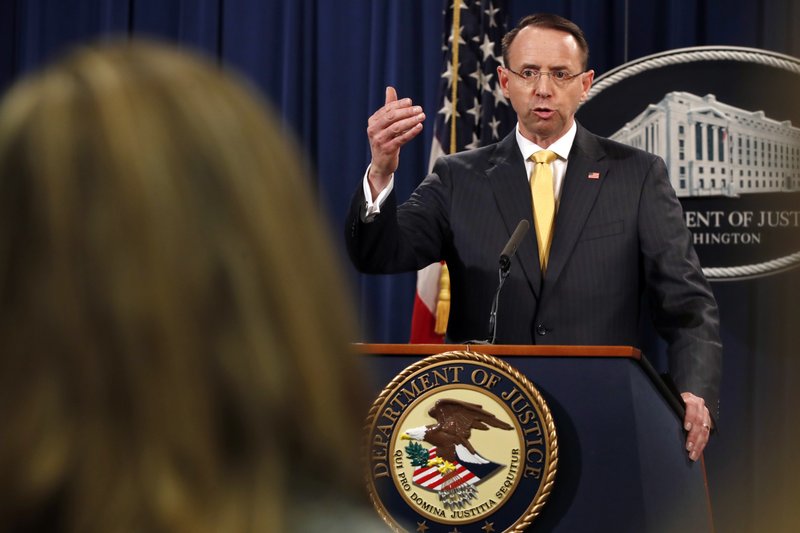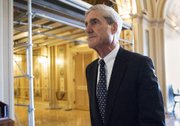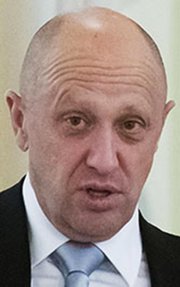WASHINGTON -- The special counsel investigating Russia's interference in the 2016 presidential election charged 13 Russian citizens and three Russian organizations Friday with trying to disrupt the U.S. political process, including efforts designed to boost the candidacy of Donald Trump and hurt that of his opponent, Hillary Clinton.
The indictment represents the first charges by the special counsel, Robert Mueller, for meddling in the 2016 presidential election.
In a 37-page indictment filed in U.S. District Court, Mueller said the 13 individuals have conspired since 2014 to violate laws that prohibit foreigners from spending money to influence federal elections in the United States.
The indictment charges that the foreigners posed as U.S. citizens, stole identities and otherwise engaged in fraud and deceit to influence the U.S. political process, including the 2016 presidential race.
"The nature of the scheme was the defendants took extraordinary steps to make it appear that they were ordinary American political activists," Rod Rosenstein, the deputy attorney general overseeing Mueller's inquiry, said in a brief news conference Friday afternoon at the Justice Department.
Though the Russians are unlikely to be immediately arrested, they are now wanted by the U.S. government, which will make it hard for them to travel or do business internationally. All were charged with conspiracy to defraud the United States, three with conspiracy to commit wire fraud and bank fraud and five with aggravated identity theft.
Trump emphasized in a tweet and a statement that the indictments accused neither him nor his campaign of wrongdoing, and said the partisan rancor that dominates politics made room for "bad actors, like Russia," to sow discord.
"We must unite as Americans to protect the integrity of our democracy and our elections," he said in the statement.
In the midafternoon tweet, he wrote that Russia began its operation before he even announced his candidacy and that its efforts did not affect the election results. "The Trump campaign did nothing wrong -- no collusion!" he wrote.
The collusion question, still unresolved, has been at the heart of Mueller's investigation, which before Friday had produced charges against four Trump associates. The U.S. intelligence community has said the Russian interference included orchestrating the hack of Democratic emails, and Mueller and his prosecutors have been assessing whether the campaign coordinated with Russia in any meddling.
The latest indictment does not focus on the hacking but instead centers on a social media effort aiming to cause confusion and discontent in the American political process.
The indictment lays out a highly sophisticated, well-funded, scheme designed in part to put Trump in the White House.
The Internet Research Agency, operating out of St. Petersburg, was described in the indictment as a hub for an intricate operation designed to reach millions of Americans to disrupt the political process in the United States. Its annual budget was millions of dollars; its stated goal was to "spread distrust toward the candidates and the political system in general."
The accusations detail unprecedented foreign attempts to influence the outcome of a U.S. election, including the manipulation of accounts at big U.S. companies like Facebook, Twitter, PayPal and Instagram. Those companies will continue to face pressure to clamp down on fraudulent accounts or risk a government crackdown from intelligence officials who have warned that Russians are already engaged in influencing the 2018 midterm elections.
The goal of the Russian operation was "information warfare against the United States," the indictment alleges. Some of the Russians, posing as Americans and working on what was dubbed "the Translator Project," "communicated with unwitting individuals associated with the Trump campaign and other political activists."
The group bought advertisements on U.S. social media, created numerous Twitter accounts designed to appear as if they were U.S. groups or people, according to the indictment. One fake account, @TEN_GOP, attracted more than 100,000 online followers.
"Over time, these social media accounts became defendants' means to reach significant numbers of Americans for purposes of interfering with the U.S. political system," the indictment reads.
They communicated with members of the campaign, volunteers, supporters and grass-roots workers, court papers show. Those individuals -- none of whom is named in the indictment -- sometimes spread the Russian-created political messages through retweets, reposts and other means.
The Russians tracked the metrics of their effort in reports and budgeted for their efforts.
In September 2016, the group ordered one worker to "intensify criticizing Hillary Clinton" after a review found insufficient anti-Clinton activity.
Several Russians traveled around the U.S. to gather intelligence for their operation, posing as political and social activists. They visited at least eight states, court papers show, and worked with an unidentified American. That person advised them to focus their efforts on what they viewed as "purple" election battleground states, including Colorado, Virginia and Florida, the indictment said.
They used clandestine methods to communicate and gather information, employing special cameras, "drop phones" and "evacuation scenarios" to ensure security.
The Russians set up Facebook and Instagram groups with names that targeted such issues as immigration, religion and the Black Lives Matter movement. They also controlled numerous Twitter groups that appeared to be controlled by U.S. people, such as "Tennessee GOP."
They spent thousands of dollars a month to buy advertisements on social media platforms, while carefully tracking the size of U.S. audiences they reached, according to the indictment.
The indictment cites a series of political advertisements paid for by the Russians, all of them against Clinton and in favor of Trump. "Hillary is a Satan, and her crimes and lies had proved just how evil she is," one advertisement created by the Russians stated.
After the election, the group organized both pro- and anti-Trump rallies, including a "Trump is NOT my President" rally in New York the week after the election and one in Charlotte, N.C., the following week.
The Russian organization had settled on Trump as their favored candidate by at least April 2016 and began producing and purchasing ads promoting the reality-TV star to voters and "expressly opposing Clinton," according to the indictment.
In June the defendants allegedly posed as grass-roots activists using the account @March_for_Trump to contact a volunteer for the Trump campaign in New York. The volunteer agreed to provide signs for their "March for Trump" rally, according to the indictment. By August, the accused Russians were communicating with unwitting Trump campaign staff members involved in community outreach to discuss their fraudulent "Florida Goes Trump" rallies.
Prosecutors also charged Yevgeniy Viktorivich Prigozhin, a Russian restaurateur and caterer widely known as "Putin's chef" for hosting Russian President Vladimir Putin's state dinners with foreign dignitaries, and two of his companies. The companies, Concord Catering and Concord Management and Consulting, have Russian government contracts. The special counsel alleges that they provided the financing for the Internet Research Agency's operations.
"Americans are very impressionable people, they see what they want to see. I have great respect for them. I'm not at all upset that I ended up on this list. If they want to see the devil -- let them see it," Prigozhin told RIA Novosti.
While the indictment does not directly accuse the Russian government of running the operation, U.S. intelligence agencies have said that Putin authorized a multipronged campaign to boost Trump's political chances and damage Clinton. The indictment points out that the two Russian companies involved in financing it hold various Russian government contracts.
The Kremlin's spokesman, Dmitri Peskov, told the RBC news website that Russian officials haven't familiarized themselves with the document yet.
Rosenstein said repeatedly that the indictment does not allege that the Russian operation changed the outcome of the presidential election.
Even though the Russians recruited and paid Americans to help them stage political rallies and promote political candidates, he said, the indictment also does not allege that any of the Americans knowingly conspired with the Russian operation.
"There is no allegation in this indictment that any American had any knowledge," he said.
Information for this article was contributed by Sharon LaFraniere of The New York Times; by Eric Tucker, Mary Clare Jalonick, Desmond Butler and Raphael Satter of The Associated Press; and by David Voreacos, Steven T. Dennis, Jeffrey D. Grocott, Erik Larson, Andrew Harris, Christian Berthelsen, Tom Schoenberg, Ksenia Galouchko and Greg Farrell of Bloomberg News.
A Section on 02/17/2018


